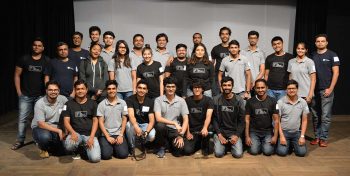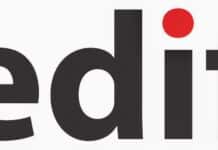“We are entering into a more market driven era which is resulting in creation of more and more free software, mostly driven by large corporations”

Rushabh Mehta is a self-taught FOSS developer who moved on to become a contributor and maintainer of ERPNext, which is today one of the world’s most popular ERP tools with a community of more than 10,000 members.
From learner to leader: Mehta shares his story to Longjam Dineshwori of EFY Group.
He also sheds light on the current open source technology trends and FOSS ecosystem in India.
Excerpts follows –
FOSS as Mehta Defines
FOSS encompasses a wide range of free and/or open source software in various fields. More than the software it is a growing movement where people who create want to share their creation to other people for the love of the craft. There are other angles to it too, like whether having control to software is necessary (specially for education and public services) or how do you ensure sustainability and ongoing maintenance (commercialization).
His First Encounter with FOSS
I grew up in the early 90s, which were the Microsoft era with MS Dos dominating the space. It was a while before I jumped into FOSS. Ironically, my first real open source tool was my 2004 iBook with MacOS (that is based on Darwin Unix). Later I discovered Python which was a fantastic programming platform and was introduced to the community. Unlike most people I still use MacOS as my primary OS though most of the software we produce is FOSS.
The ERPNext story
I was always a hobbyist programmer. As an attempt to help my family business, which was reeling under a bad ERP (enterprise resource planning) implementation, I started writing out my own ERP system in 2006. After a couple of years, the family business was sold but I decided to keep building the ERP. In 2008, I started my own company, Frappe Technologies, to productize the ERP that I was building. And in 2010, we named the project ERPNext and launched it on a Software as a Service (SAAS) business model.
In 2011, we moved from Google Code to GitHub, and that proved to be a turning point. Gradually we started positioning ourselves more as an open source ERP. Our end goal is to become a WordPress like tool for ERPs.

Challenges Faced in the Journey
Being in India, we did not find any mentor or community that could help us in building an open source product. Whatever learning I had was by reading HackerNews and following other OSS projects. Seeing how popular open source projects operate is inspiring, but there are 100 steps that you need to take to reach there, so having contextual help was really important and we missed that. Somehow, we struggled and figured out a lot of stuff ourselves maybe reinventing a few un-necessary wheels too.
Also having no place to tap into an existing community was frustrating. The only people still passionate about FOSS in India belong to the Linux era and there are no real events where the community could gather and talk. So, the feeling of isolation was also pretty much there in the first few years.
“COMPANIES LOOKING TO EXPAND MARKETS AT LOWER COSTS WILL LEVERAGE AND CONTINUE FUNDING FOSS ACTIVITY”
Current Status of FOSS
While the ideological aspects have faded away, the movement has become very commercial. In fact, in my view, over-commercialisation is making it toxic. I think being too ideological in the first part has backfired and it would have been great if there was more Torvald like pragmatism. Today it is very market driven. The good part about this is that consumers are benefiting. Today most of the internet runs on FOSS so most of the operating systems (on phones). The kind of services we can enjoy today owe huge debt to the ideological movement and we are glad to be enjoying its fruits.
Where is FOSS Heading?
The market will continue to drive FOSS forward. Companies looking to expand markets at lower costs will leverage and continue funding FOSS activity. The ideological space has shrunk and even the political environment has become so toxic that taking FOSS forward is going to be difficult. Activities have moved on other goals like data privacy and surveillance as enemies #1. Microsoft is no longer the evil empire and is now one of the largest contributors to FOSS.
So, we are entering into a more market driven era which is resulting in creation of more and more free software, now mostly driven by large corporations.
India’s Position in the Global FOSS ecosystem
India has a very small FOSS community and they too have moved on, neither there are any new ideas. Apart from ERPNext, a few more companies are starting to publish open source libraries. Most of this is market driven and this trend will continue.
“GOVERNMENT-RUN INSTITUTES LIKE IITS ARE ALSO VERY DISTANT FROM ANY CONTRIBUTION. WHILE THE GOVERNMENT HAS A FOSS POLICY, IT’S A FARCE”
Government’s FOSS Policy is a Farce!
Government procurement procedures are a nightmare and there is no way right minded companies can participate. Government-run institutes like IITs are also very distant from any contribution. In all, while the government has a FOSS policy, it’s a farce.
A free product like ERPNext can add so much value and savings to governments, but it is sad that there is no real interest to take things forward. Indian government probably is dependent on “experts” from big consulting firms who really don’t have the right incentives. Having worked with various government agencies, I am not sure they can do anything.
More likely they will be laggards in FOSS adoption and will follow the market.
Build Skills by Doing More Projects
Every young engineer today is doing FOSS. Most of the web related technologies are open source and so are most of the jobs. A lot of tech teams globally run lots of FOSS in their stack. My advice to the youngers would be to build skills by doing as many projects as they can. Most skills are transferrable to any stack. So, building projects on Python, Node, etc. is a great way to start building a good resume a company can hire on.


















































































